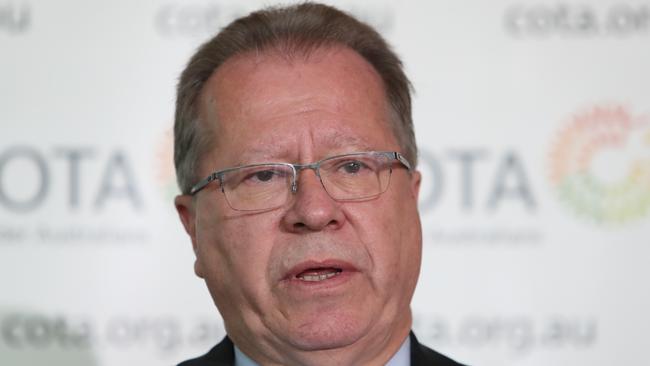Ageist employer attitudes must change for over-65s to find work
Employers will have to shed ageist attitudes to realise federal ambitions for older Australians to stay in the workforce.

Australian employers will have to shed ageist attitudes to realise Josh Frydenberg’s ambition for older Australians to remain in the workforce to help buffer the economy from the impact of an ageing population, a key seniors group has warned.
COTA Australia chief executive Ian Yates welcomed the Treasurer’s focus on supporting older Australians to stay in paid work past the age of 65, but urged employers to get on board.
“This isn’t about forcing people to work longer than they want to or are physically able to,” Mr Yates said. “It’s about supporting Australians to work longer who choose to do so, and creating and capitalising on opportunities for them to do so.
“A significant proportion of people aged between 65 and 75 are still working and more would do so if age discrimination and lack of support weren’t such barriers to remaining in the workforce, often from the 50s onwards.
“People work longer for many reasons — financial freedom, professional satisfaction or staying engaged socially — and they should be supported to work as long as they choose to.”
In a speech to the CEDA annual dinner on Tuesday, Mr Frydenberg said the ageing population “will place new demands on health, aged care and pension systems,” and there would be fewer workers to pay for it because the ratio of working-age Australians to over-65s would fall to an estimated 2.7:1 over the next 40 years.
He called for greater measures to boost workforce participation for the over-65s with targeted skills retraining.
Mr Yates said employer attitudes would have to undergo a major culture change first.
“At least 30 per cent of employers told the Australian Human Rights Commission last year that they would not recruit workers over 50, which is morally reprehensible and entirely illegal,” he said.
“We need a co-ordinated set of workforce measures to support people to develop skills, retrain for new careers, find new work opportunities and incentivise employers.”
National Seniors spokesman Ian Henschke said older Australians wanted to work longer, but weren’t supported to do so. “When they do retrain, we know they are experiencing discrimination,” he said. “Training and retraining costs money and despite the government offering incentives of $10,000 to employers who take on the over-60s, the largest cohort on Newstart is the over-55s.”




To join the conversation, please log in. Don't have an account? Register
Join the conversation, you are commenting as Logout